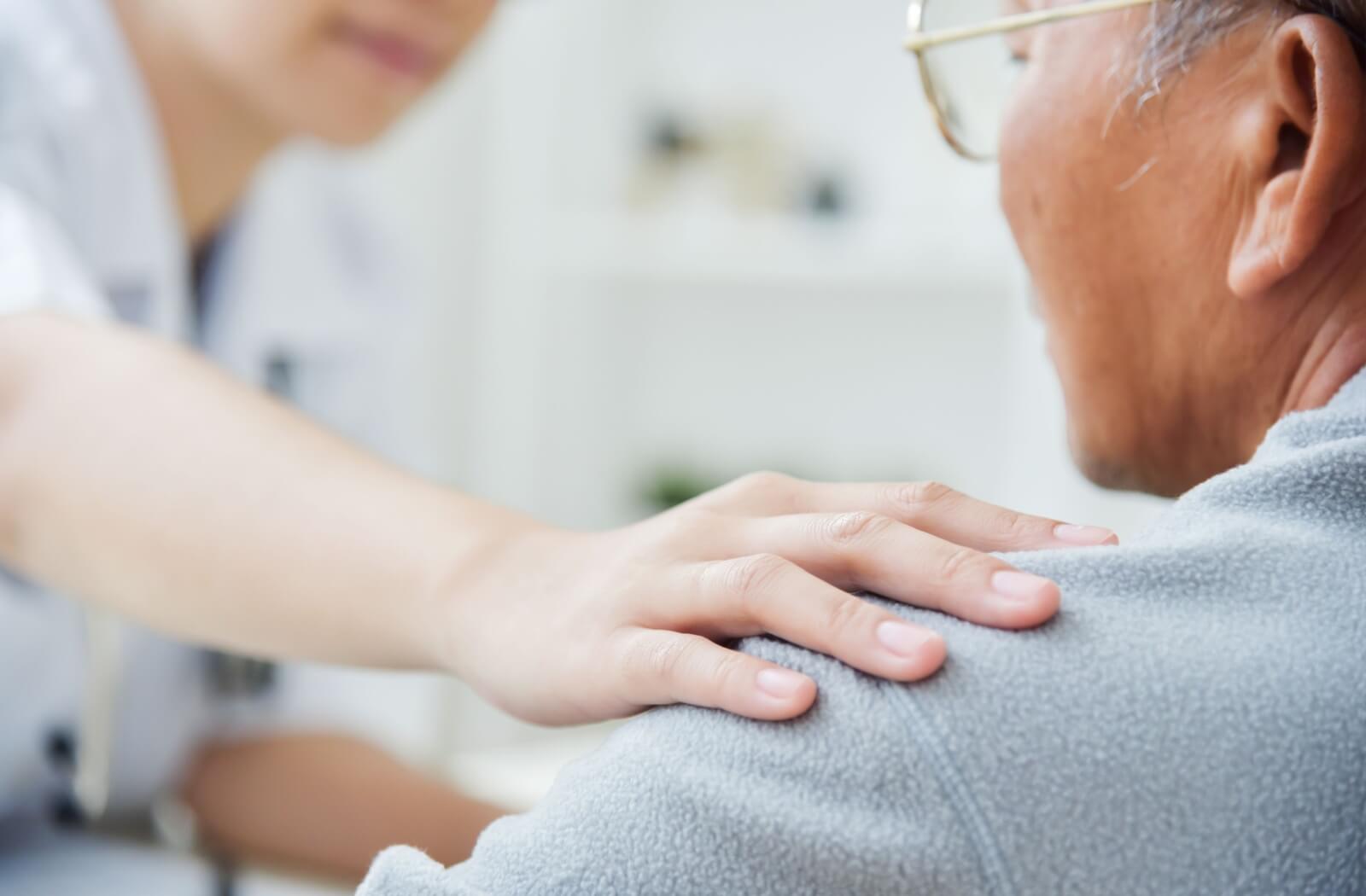To stay independent, being proactive is key to reducing the risk of falls. A fall isn’t about losing balance—it can shake confidence and a person’s sense of safety. Without the right support, the aftermath of a fall can linger long after bruises fade or casts are removed.
Falling can have a significant impact on an older adult’s mental health. They often lead to the fear of falling again or a person avoiding their favorite activities. A bad fall can even lead to withdrawal and social isolation, which have long-lasting effects on mental health.
How Falls Affect Mental Well-Being
When someone experiences a fall, it’s not just the physical recovery that matters. There’s often an emotional ripple effect that impacts how safe, independent, and connected they feel. Falls can create emotional challenges that shape how older adults move through daily life.
The Emotional Impact of Falling
Falls can trigger a range of emotional responses from fear to frustration. These feelings often lead to changes in behavior and lifestyle that can further affect mental health.
Fear of Falling Again
It’s common for someone who’s fallen to become more cautious—even to the point of avoiding activity altogether. That fear of falling again can create a cycle of anxiety that limits movement, which can lead to further physical decline. However, when activity drops, so does independence.
Loss of Independence
After a fall, many seniors begin to second-guess their abilities. They might need a hand with tasks they once managed on their own, which can feel frustrating or disheartening. That loss of autonomy sometimes leads to feelings of helplessness or sadness. Over time, these emotions may contribute to depression or long-term anxiety.
Social Withdrawal
Public places start to feel riskier after a fall. Some older adults pull back from social events or activities because they’re afraid of falling in front of others or being alone when something goes wrong. This kind of isolation chips away at emotional well-being. Without regular connection, the risk of social isolation and related mental health concerns grows.
Long-Term Mental Health Challenges After a Fall
The emotional impact of a fall can sometimes become more than just a temporary dip in confidence. The effects may grow into long-term challenges that affect day-to-day living.
Depression & Anxiety
Many older adults experience depression or anxiety after a fall. These conditions may not always look the way people expect—symptoms, like fatigue, irritability, or changes in sleep, can go unnoticed or get mistaken for other issues.
What matters most is paying attention to shifts in mood, energy, or behavior. These signs can reveal the need for additional support.
Cognitive Decline
Staying active supports brain health. But after a fall, many people slow down or stop moving as much. That decrease in activity can make existing memory issues worse, or introduce new challenges. Over time, this can contribute to patterns of cognitive decline.
Post-Traumatic Stress Responses
While not everyone experiences it, some seniors may develop trauma-like symptoms after a serious fall. They might replay the event in their mind, avoid certain places, or feel on edge more often than before. This kind of heightened awareness, paired with anxiety, can reduce confidence and increase emotional exhaustion.

Tips for Maintaining a Healthier Mind & Body
Recovering from a fall means more than just physical healing. With the right tools, older adults can regain both their strength and their sense of calm.
Staying Physically Active
Gentle activity—like walking, stretching, or low-impact exercises—can boost mood while also rebuilding strength. Physical movement triggers endorphins, which help reduce anxiety. Even small efforts can prevent future falls and give a stable foundation for everyday life.
Building a Strong Support Network
Whether it’s a chat with a neighbor or a visit from family, meaningful connections matter. After a fall, staying social can help ease fears and prevent isolation.
It helps to encourage open conversations about concerns and look for ways to stay engaged in hobbies or routines. Community and connection are key to recovery.
Seeking Professional Mental Health Care
Sometimes, a little outside help goes a long way. Therapists who specialize in working with older adults can help process emotions tied to a fall. Cognitive-behavioral therapy (CBT), in particular, can reframe fearful thinking, encourage new routines, and improve overall mental health.
Creating a Safer Living Environment
One way to reduce fear is by making the home more fall-friendly. Small adjustments matter—they’re key to keeping your loved one safe at home.
It helps to:
- Remove clutter from walkways to ensure clear paths.
- Install grab bars in bathrooms near toilets and inside showers or tubs.
- Add non-slip mats or rugs in areas prone to moisture, like bathrooms and kitchens.
- Improve lighting in hallways, staircases, and entryways to avoid tripping hazards.
- Secure loose cables and tuck them away from common walking areas.
- Use sturdy, non-slip handrails on all staircases for extra support.
These safety tips can make a significant difference.
Promoting Education & Awareness
Knowing what to expect after a fall helps families respond with compassion and care. Education programs, workshops, or even just shared resources can prepare caregivers and loved ones to offer support early. When families and seniors alike understand the impact of falls on mental health, it opens the door for better conversations—and better outcomes.
Supporting Seniors Through Holistic Care
A fall may be a single event, but its impact can affect a senior’s day-to-day life in more ways than one. From anxiety to cognitive decline, these changes can feel overwhelming without support. A caring, connected environment makes a world of difference for older adults, and here at Juniper Village at the Spearly Center, we’re ready to help..
Here, we focus on holistic care. We believe in helping community members regain confidence, stay connected, and feel more like themselves again. To learn more about our community, schedule a visit today! We’re excited to show your family what sets us apart.







